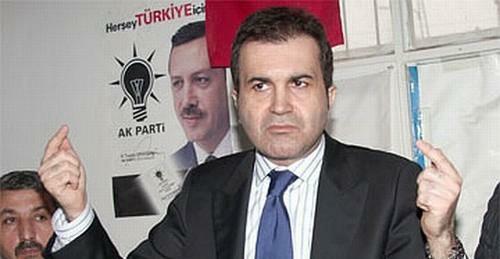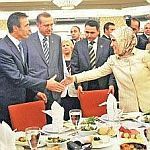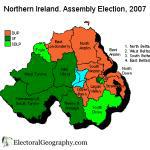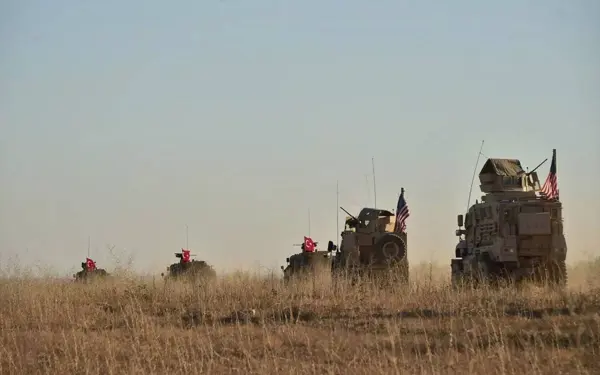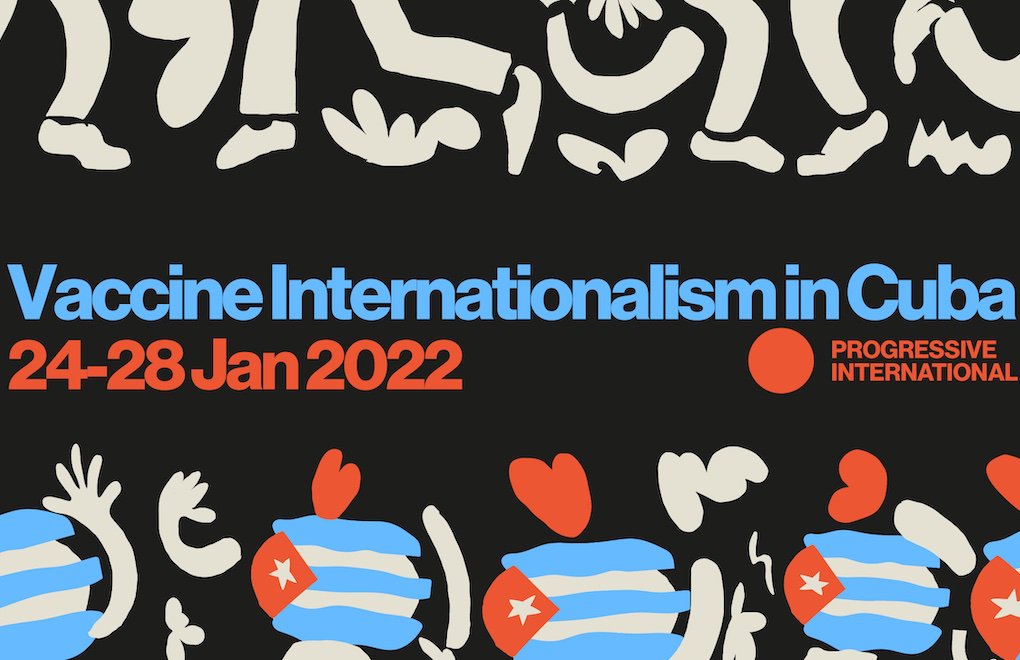"Ever since the USA occupied Iraq, the issue has become a regional one. Now the USA are withdrawing, and they also want stability in the region. As long as the PKK is there, stability is impossible. The opportunity lies in the common ground created by domestic developments and the withdrawal of the USA. [...] Now that the opportunity of US withdrawal has arisen, the state mentality needs to make use of it."
Let us do a test, which should not be misunderstood as an insult to the intelligence of our readers or general knowledge. Of the following, who may have said the above in relation to the discussions about the "Kurdish initiative" or the "Democratic initiative"?
a. An official at the Turkey desk of the NATO Headquarters in Brussels
b. An analyst of a nationalist think tank
c. an ordinary leftist who sees the government as a "puppet of US imperialism"
d. a high-ranking soldier of the Planning and Principles Department of the General Staff, wishing to remain anonymous
e. None of the above
It is unlikely that "e" was chosen by those who believe that the "iniative" is a result of the ruling Justice and Development Party's (AKP) unrivalled far-sightedness, crowned by Prime Minister Erdoğan's "emotional intelligence", and that "peace" and "democracy" are a result of this love.
For them, suspecting Tayyip Erdoğan and his government of being motivated by anything but "peace" and "brotherhood" means restraining our desire for "peace". They believe that peace is as close as the government is powerful.
However, the answer to our little test is indeed "none of the above". The words were uttered not by anyone on the list, but by Adana MP Ömer Çelik, one of Erdoğan's consultants. In an interview with the Akşam newspaper on Wednesday, Çelik leaves the bewitched praise and vaporous glorification of the government to the "intellectuals" and appeals to rational individuals:
He emphasises that the guarantee of the stability of an "initiative" and of its continuity is based not on "emotional intelligence" but on history and the state. Ömer Çelik is an outspoken Prime Ministerial Consultant.
He brings "peace" down from the sky, from the gallery of exulted principles to the world of clear interests. Word for word, his utterance is similar to what we said about cross-border operations one and a half years ago:
"We can say that the different approaches of the Turkish Armed Forces and the AKP are actually very similar recnetly. Generally, this agreement seems to be based on their need for the role of the USA as mediator and saviour in the Kurdish question, which they both consider an issue of security. Particularly after the occupation of Iraq by the USA, the Kurdish issue became a regional issue; a solution has become virtually impossible without starting to deal with it at a regional level. Especially for Turkey, the existence of social, cultural, national, logistic and military resources for the PKK in Northern Iraq, i.e. in Southern Kurdistan, has made such an approach inevitable. Now we are witnessing such a regional approach." (see Ertuğrul Kürkçü, Islamic Brotherhood in the Army's and the AKP's Solution to the "Kurdish Question", Evrensel, 23 December 2007, bianet).
Clearly, if you had any doubts before, lay them to rest: The process that began with the initiative of Minister of the Interior Atalay points to the possibility of a real "peace"; however, such a "peace", created by the "state brain", is not based on the "freedom" of society, but on the state's need for "security" and "hegemony".
When Ömer Çelik bases the "initiative" on "hegemony", he does not mince words:
"Fearing that Barzani etc. will split up Turkey means misunderstanding Turkey historically and politically. The region, including Mosul and Kirkuk, are within our field of life. [...] As a country with in-depth defense, we will not stick to defense only, but also make use of the offensive."
When he realises that he may have gone too far, Çelik adds a qualifying remark: "This is not an imperialist perspective."
What is it then? "Instead of an introverted nationalism, we want to pursue a nationalism that competes with the outside world."
Thus, the "state brain" that allows "peace" based on security speaks of an "offensive", i.e. an attack. An aggressive peace!
Presumably Ömer Çelik has not read the blow, but others have predicted where the AKP will go before he said it:
"[...] It seems that Turkey hopes to solve the Kurdish question not in Turkey's Kurdistan, but in Iraqi Kurdistan. There are two steps to this: Teh first is to get Barzani onto Ankara's side with political and economic relations. The second is for the AKP in Turkey to fuel the religious movement, particularly in the region [southeast]; The party aims at using the existing religiosity among Kurds as a political lever and at pulling the region into its orbit." (interview with Ertuğrul Kürkçü, Kurdish Question: A New Concept Based on Class, Yeni Özgür Politika, 31 December 2007).
If this is the case, do we believe that there is not a serious possibility of "peace"? Not at allé On the contrary, it is precisely because the "state brain" has for the first time become involved in the formation fo peace that it is being considered a serious possibility in social and political life.
However, the current definition of such a "peace" as a lack of war between state and citizens only shows what this "peace" will not turn into.
At the same time, is it possible not to be horrified at Ömer Çelik's citation of a "field of life"; be it an unfortunate choice of words or a Freudian slip, it is like Germany's Third Reich, which cited the impossibility of the state existing without going beyond its borders as a justification for war.
When Hitler began his occupations, he awakened the legacy of German nationalism, the concept of "Lebensraum", and turned it into the state's basic foreign policy.
Could the main reason for our "peace" be the search of our "state brain" for a Lebensraum beyond Turkish borders? Can peace be achieved with a concept that caused the Second World War?
Far-sighted analyses would have been needed three or four years ago in order to see taht "peace" is too serious an issue to leave it to the "state brain" and to understand that the government is a constituent part of this "state brain".
In order to understand the events taking place in front of us today, it is enough to stop placing the "government" between our eyes and our mind.
[...]
Now, those who are taken to the front during war, who are placed in front of the rifle barrels, who bury their relatives, whose lives are turned upside down, those who thirst most for peace do not need the lullabies of those flattering the government.
They need a language similar to the outspoken government consultant's clear language, which allows them to announce their own peace options based on freedom and the hegemony of citizens.
As long as peace is not taken to the streets, and no bridge is built between peace and people's hegemony, as long as we leave "peace" to the "state brain", our share may have no other option but to be taken to the front in the next war...(EK/AG)





